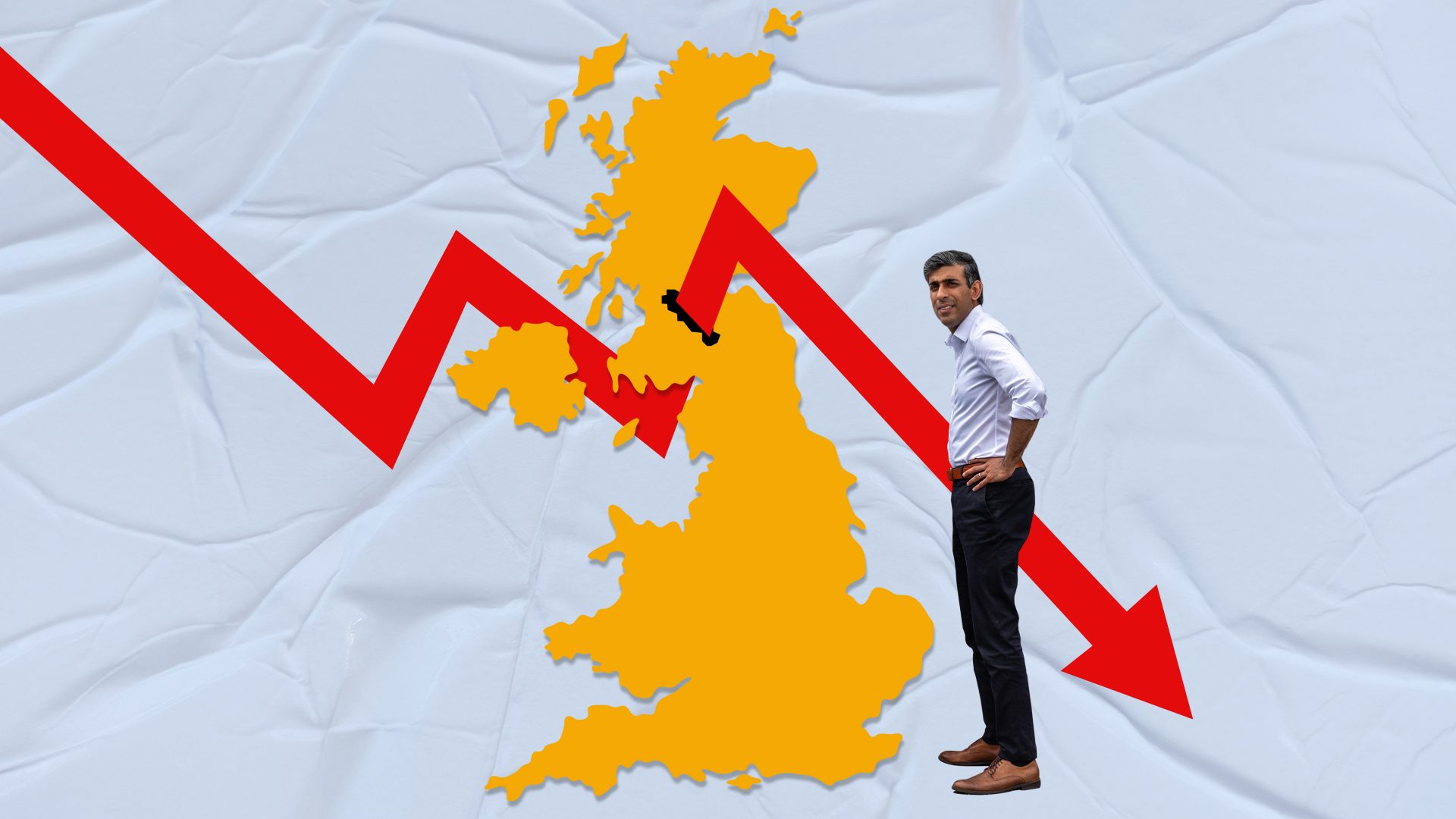The traditional gift for a third anniversary is leather and, according to the IMF, the UK’s economy is being leathered black and blue as it marks three years since leaving the EU.
Chancellor Jeremy Hunt, with the zeal of the convert, said last week that the UK’s growth plan had been “energised” by Brexit. The IMF, conversely, says the country is on course to be the world’s worst-performing major economy this year, with a 0.9 percentage point downgrade to its annual growth projection.
The body says it expects the economy to contract by 0.6 percent this year, making the UK the slowest-growing economy in the G7. Russia’s economy, meanwhile, is expected to grow by 0.3 percent this year after a 2.2 percent contraction in 2022.
Overall the IMF has actually upgraded its global growth forecasts in response to falling energy prices and hopes inflation will fall faster than initially predicted. But the UK is expected to contract, with 0.9 percent growth next year. Its underperformance stems from “tighter fiscal and monetary policies and financial conditions and still-high energy prices weighing on household budgets,” the IMF says.
The news is hardly the gift Brexiteers wanted to unwrap amid what are already fairly muted celebrations of their anniversary (tellingly, the government declined to put a spokesperson up for last night’s long-planned Newsnight special, leaving an eccentric former Brexit Party MEP to make the Leave case).
The government’s argument in the face of its extreme economic woes has been that it was the result of Covid and Russia’s invasion of Ukraine, the effects of which every other G7 nation has faced. Yet the UK is the only member not to have reached its pre-pandemic size and has suffered the worst inflation rate of its peers in the past year. Might another factor play a part?
Its response today has been largely to put its collective finger in its ears, sending out junior minister Richard Holden on to the airwaves to say, without explaining why, “I think Britain can beat those predictions”.
They better hope so. Because, with a growth forecast worse than Russia’s, the only message to take from three years of Brexit is that economic sanctions work best when you impose them on yourself.










